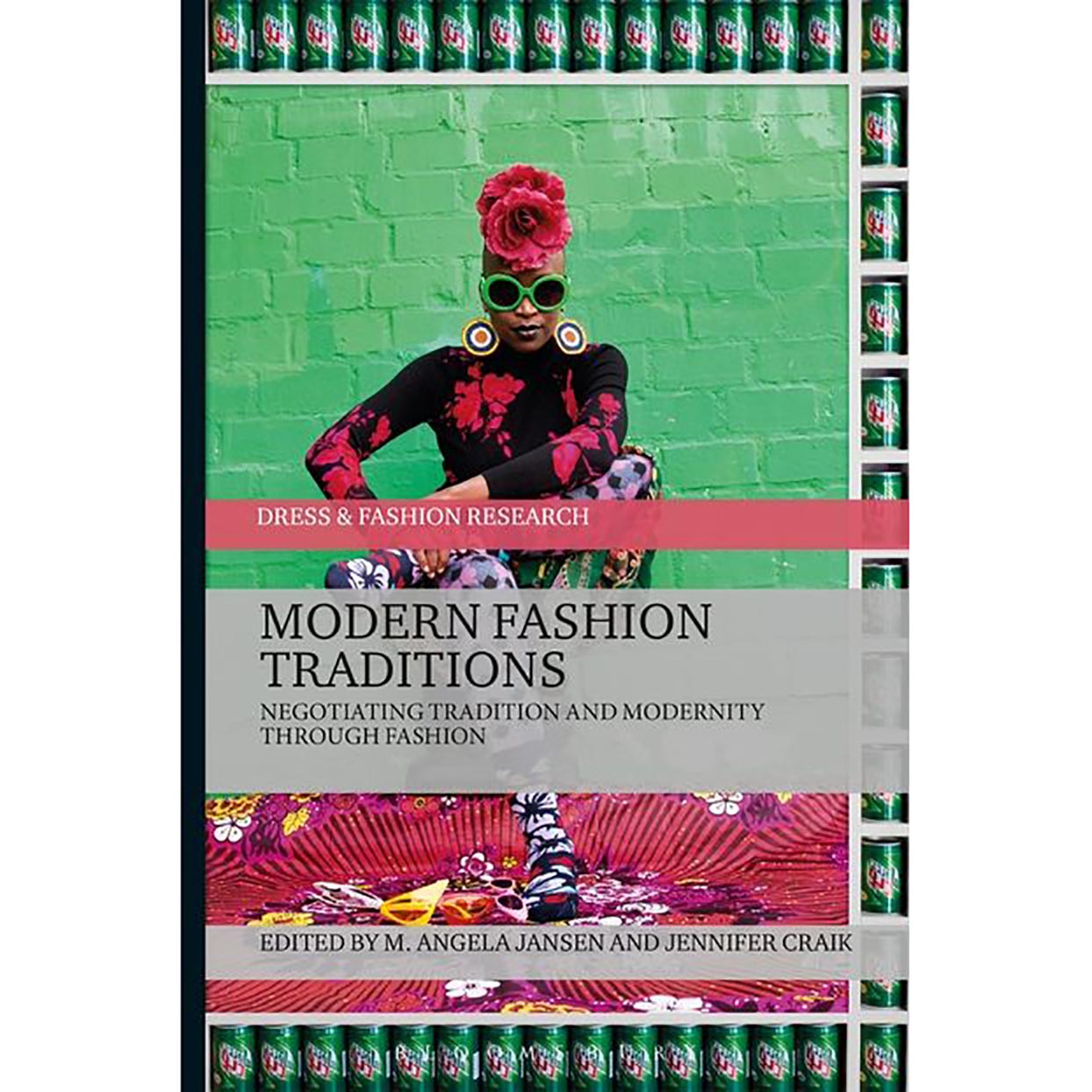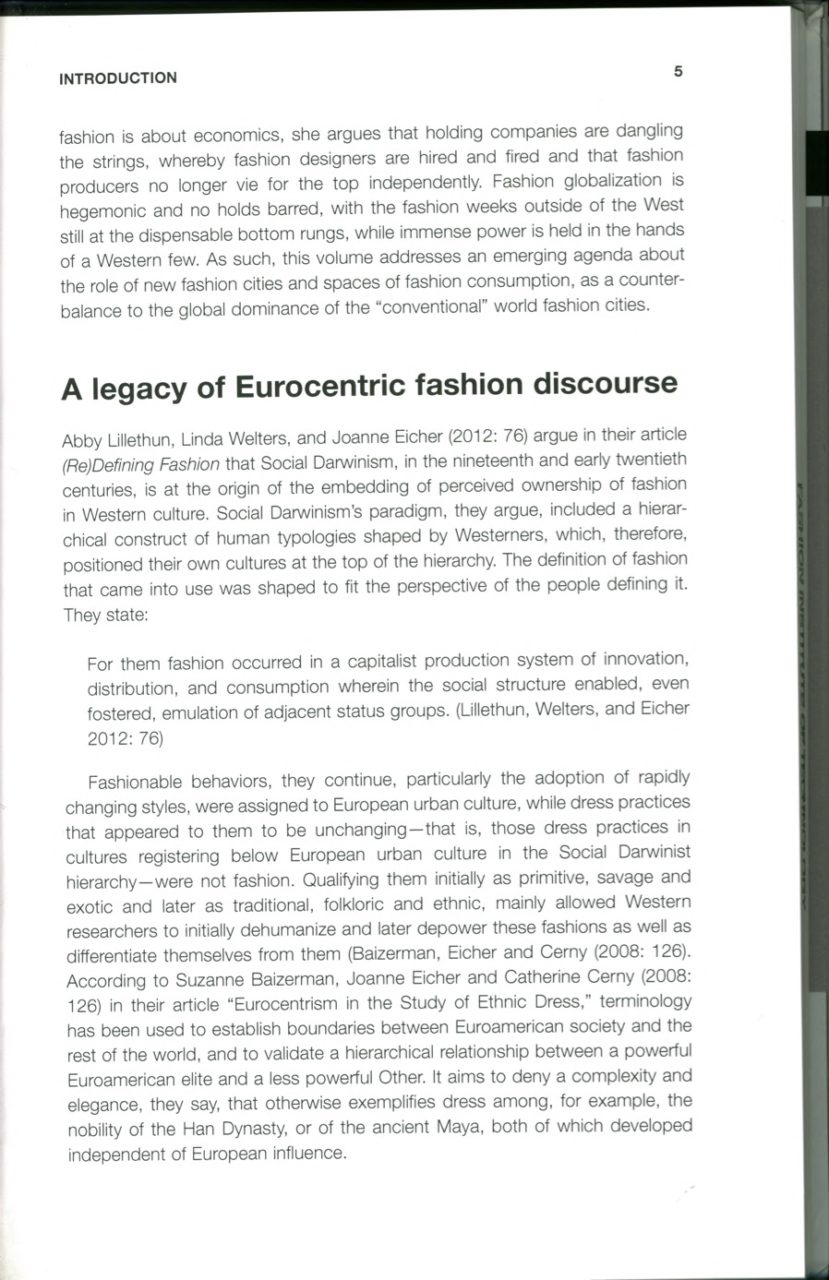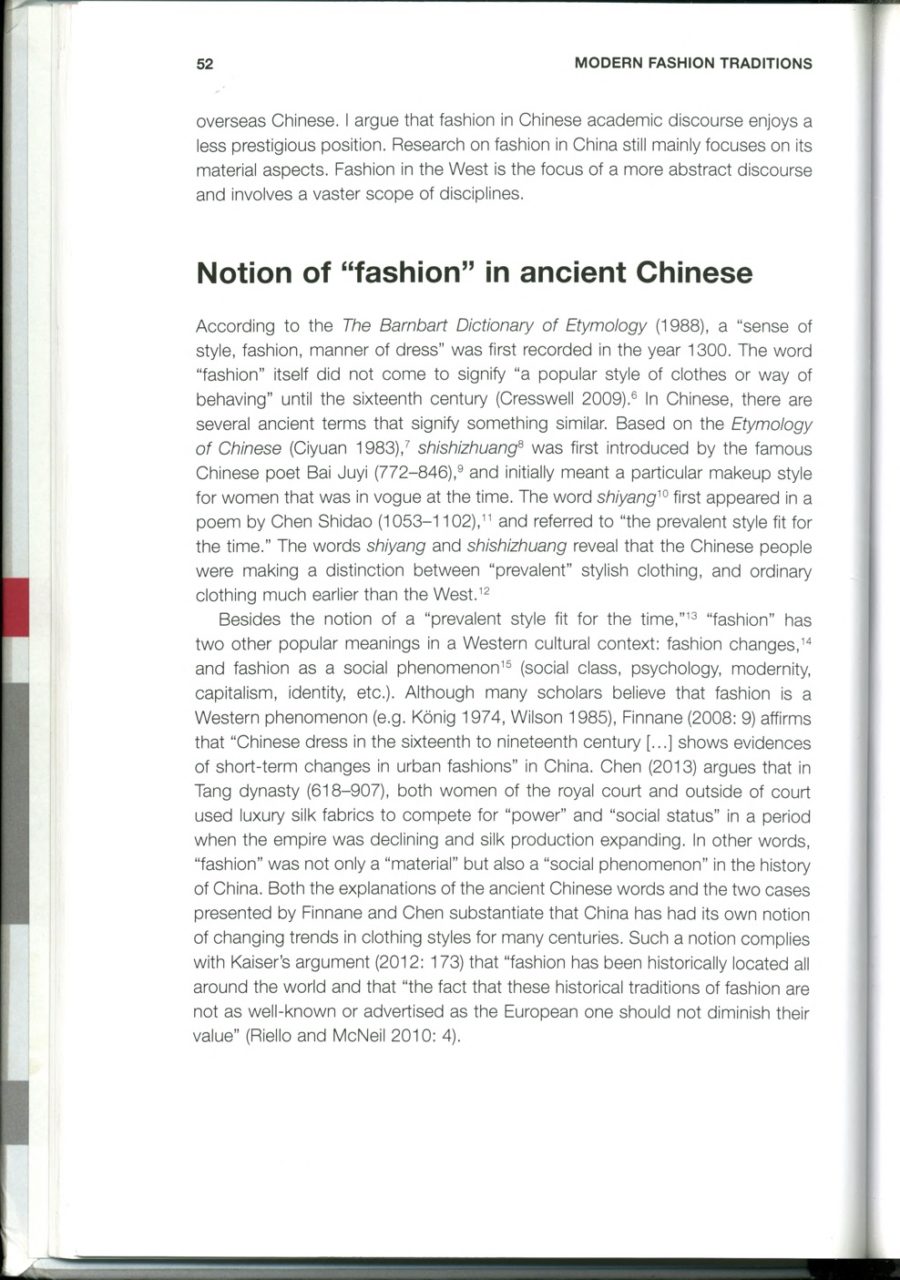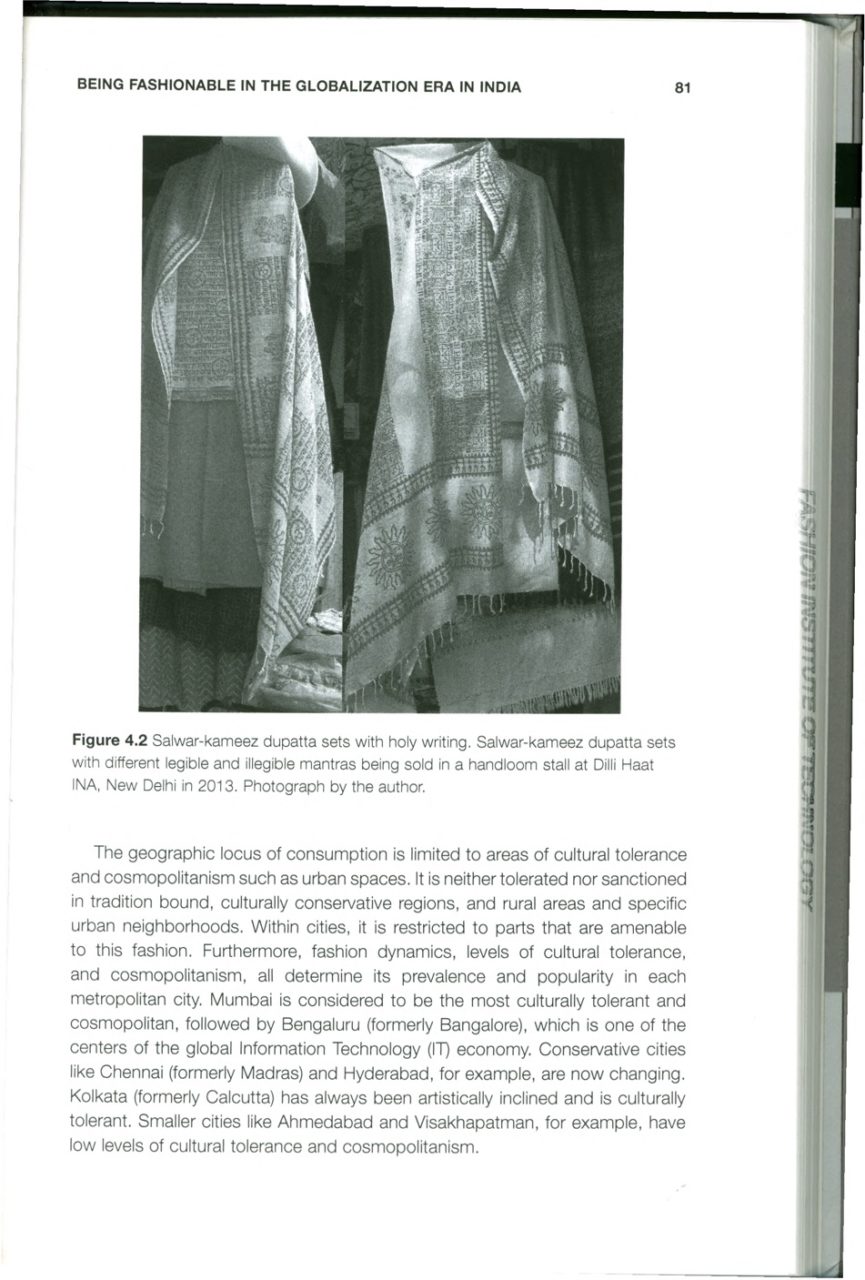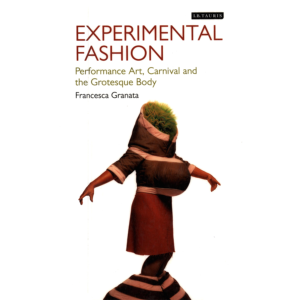Modern Fashion Traditions: Negotiating Tradition and Modernity Through Fashion (2016)
Modern Fashion Traditions questions the dynamics of fashion systems and spaces of consumption outside the West. Too often, these fashion systems are studied as a mere and recent result of globalization and Western fashion influences, but this book draws on a wide range of non-Western case studies and analyses their similarities and differences as legitimate fashion systems, contesting Eurocentric notions of tradition and modernity, continuity versus change, and ‘the West versus the Rest’.
Preconceptions about non-Western fashion are challenged through diverse case studies from international scholars, including street-style identity in Bhutan, the influence of Ottoman cultural heritage on contemporary Turkish fashion design, and an investigation into the origins of the word ‘fashion’ in Chinese. Negotiating tradition, foreign influences and the contemporary global dominance of Western fashion cities, Modern Fashion Traditions will give readers a clearer understanding of non-Western fashion identities in the present.
Accessibly written, this ground-breaking text makes an essential contribution to the study of non-Western fashion and will be an important resource for students of fashion history and theory, anthropology, and cultural studies.
More Information
Description
Table of contents
Table of contents
1. Introduction
M. Angela Jansen, London College of Fashion, UK, and Jennifer Craik, Queensland University of Technology, Australia
PART I: FASHION HISTORY REVISED
2. Neither East nor West: Japanese Fashion in Modernity
Toby Slade, University of Tokyo, Japan
3. ‘Fashion’ in the Chinese Context
Christine Tsui, University of Hong Kong, China
PART II: THE COMMODIFICATION OF CULTURAL HERITAGE
4. Being Fashionable in India in the Globalisation Era: Holy Writing on Garments
Janaki Turaga, Independent Researcher, India
5. Exotic Narratives in Fashion: The Impact of Motifs of Exotica on Fashion Design and Fashionable Identities
Jennifer Craik, Queensland University of Technology, Australia
PART III: SELF-ORIENTALISM OR NATION BRANDING?
6. Ottoman Costume in the Context of Modern Turkish Fashion Design
S¸akir Özüdog?ru, Anadolu University, Turkey
7. Beldi Sells: The Commodification of Moroccan Fashion
M. Angela Jansen, London College of Fashion, UK
PART IV: LOCAL CONSTRUCTS OF THE GLOBAL
8. History, Art, and Plastic Bags: Viewing South Africa Through Fashion
Victoria L. Rovine, University of North Carolina at Chapel Hill, USA
9. Constructing Fashionable Dress and Identity in Bhutan
Emma Dick, Middlesex University, UK
PART V: CONCLUSION
10. Afterword: Fashion’s Fallacy
Sandra Niessen, Independent Anthropologist, The Netherlands
Index
About the author
About the author
M. Angela Jansen is a fashion anthropologist who did her PhD research on the Moroccan fashion industry (Leiden University, 2010). She is currently an independent scholar based in Brussels and working on a manuscript for a reader on fashion anthropology. Her research focuses on disrupting conventional Eurocentric notions of fashion, facilitating/encouraging a new, decolonized fashion paradigm whereby fashion is considered as a multivalent, pluralistic worldwide phenomenon.
Jennifer Craik is Professor of Fashion at QUT and formerly Professor of Fashion and Textiles at RMIT University, Melbourne. She has also been Professor of Communication and Cultural Studies at the University of Canberra and Adjunct Professor of the Australia and New Zealand School of Government, Australian National University, Canberra. She also worked at Griffith University, Brisbane, and taught and researched in areas of media and cultural studies, cultural policy, tourism studies, and arts funding.
External links
External links
Worldcat: Click here
FIT Library: Click here
Webpage for the book: Click here
Author Website/University Faculty page: Click here
Book Reviews
Book Reviews
Alimen, Nazli. “MODERN FASHION TRADITIONS: NEGOTIATING TRADITION AND MODERNITY THROUGH FASHION.” International Journal of Fashion Studies 6, no. 2 (2019): 303-306.

